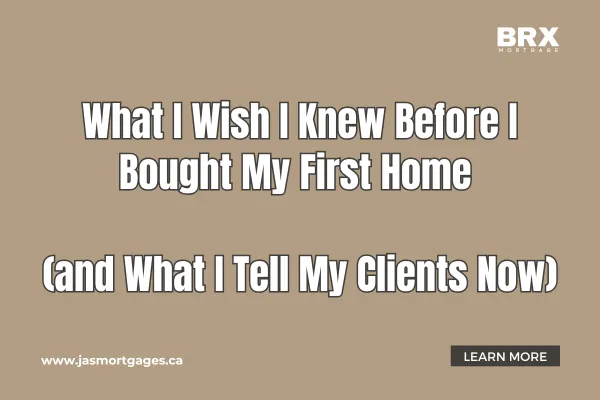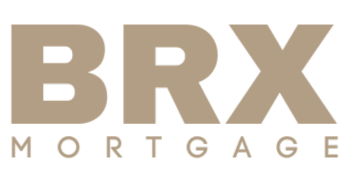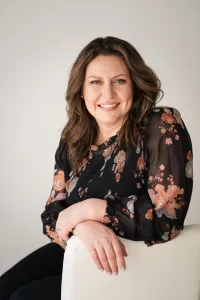Stay Up To Date
The world of real estate and mortgages is ever-changing. That's why I take pride in crafting content about industry news, tips & tricks, interest rates, how-to's, and more. My goal is to provide you with the information you need whenever you need it. Explore my blogs below to start expanding your knowledge about home financing.

What I Wish I Knew Before I Bought My First Home (and What I Tell My Clients Now)
Buying your first home is exciting. There’s nothing quite like getting the keys, walking through the door, and thinking — this is mine.
But if I’m honest? There’s a lot I didn’t know the first time around.
Looking back, I would’ve made different choices — not because I regret becoming a homeowner, but because I now understand how powerful a mortgage can be when it’s used strategically.
So, here it is — the real talk.
These are the six things I wish I knew before I bought my first home, and what I now help every single one of my clients understand (especially first-time buyers here in London, Ontario).
1. Buying a home is the easy part. It’s the cash flow that matters.
It’s easy to get fixated on the down payment, interest rate, or whether the kitchen has quartz countertops. But none of that matters if you can’t comfortably afford your life after the purchase.
What I didn’t fully understand is how tight things would feel once the bills started stacking up — especially when you add in:
- Property taxes
- Utilities
- Maintenance (because yes, things will break)
- Furniture, insurance, and that “small” reno project you didn’t plan for
I now coach clients to look beyond just “what can I afford on paper?” and instead ask, “What will my cash flow look like after I move in?” Because the truth is — buying a home should feel like a step forward, not a financial squeeze.
2. A pre-approval is not a guarantee — and you need a mortgage expert in your corner.
When I first bought, I walked into my bank, got a pre-approval, and thought I was set. What I didn’t realize is that those numbers can change quickly — and often, they don’t account for the full picture.
A mortgage broker (not just a bank rep) looks at:
- Your income and debts
- Future changes (like parental leave or job shifts)
- Property type and lender guidelines
- Cash flow planning, not just approval numbers
I now help clients build realistic, flexible plans — and I also help them understand what to do next if something changes between pre-approval and closing. Because things happen.
3. There’s more to a mortgage than the interest rate.
Back then, I just wanted the “lowest rate.” That’s what everyone talks about, right?
What I didn’t realize is that the wrong mortgage — even with the lowest rate — can cost you thousands in penalties, fees, or restrictions later on.
Now I look at:
- Prepayment privileges
- Portability and flexibility
- Penalty structures
- Whether the mortgage aligns with long-term goals
It’s not just about what works now. It’s about what happens if life changes. (Because it will.)
4. You’re not “locked in” forever — and you shouldn’t be afraid to review your mortgage early.
I used to think once you sign those mortgage papers, that’s it for five years.
Wrong.
Your mortgage should evolve with your life — and that might mean refinancing, re-amortizing, or restructuring to reduce payments, access equity, or improve cash flow.
I’ve helped many first-time buyers come back a year or two later to make a new plan — and it’s one of my favourite parts of this job. Life changes. Your mortgage should support that.
5. You can ask questions. Lots of them.
I didn’t want to feel “silly” for asking too many questions the first time around. So I didn’t. I just signed things and hoped I was making the right choice.
Now? I encourage questions — even the ones you think are obvious. Buying a home is a big deal. You deserve to understand what’s happening every step of the way.
6. I wish I had kept my first home as an income property.
Looking back, one of my biggest “I wish I knew” moments was selling my first home when I moved up.
At the time, it felt like the natural next step — sell one place to buy another. But what I didn’t fully understand then was the long-term potential that property had as a rental. It had solid bones, a great location, and would’ve easily cash flowed with a tenant.
If I had held onto it, that property would’ve built equity and provided passive income — all while someone else helped pay down the mortgage.
Now, when I work with clients who are upgrading or moving, I always ask:
“Can we run the numbers to see if keeping your current home makes sense as an income property?”
Sometimes the answer is no — and that’s totally OK. But sometimes, it opens the door to building wealth faster, without needing to start from scratch.
And let me tell you — I wish someone had helped me see that at the time.
Buying a Home Is About More Than Ownership — It’s About Control
Yes, real estate builds wealth. Yes, owning your own home can be a smart move.
But more than anything? It’s about control.
Control over your living space.
Control over your finances.
Control over your long-term goals.
And the right mortgage strategy can make that journey feel a whole lot easier — especially when you’ve got someone in your corner who’s been through it before.
Ready to Buy Smarter?
Whether you’re buying your first home or helping your kids prepare for theirs, I’d love to walk you through the real numbers and help you make confident, informed choices — without surprises.
🔗 Book a discovery call here: https://jasmortgages.ca/book-appointment
📍 Mortgage Broker | London, Ontario | Specializing in cash flow and first-time buyers
Copyright © 2025 Jasmine Srnicek - Your Mortgage Broker.
All rights reserved.
Jasmine Srnicek
Mortgage Broker, M200002497
BRX Mortgage, FSRA 13463

